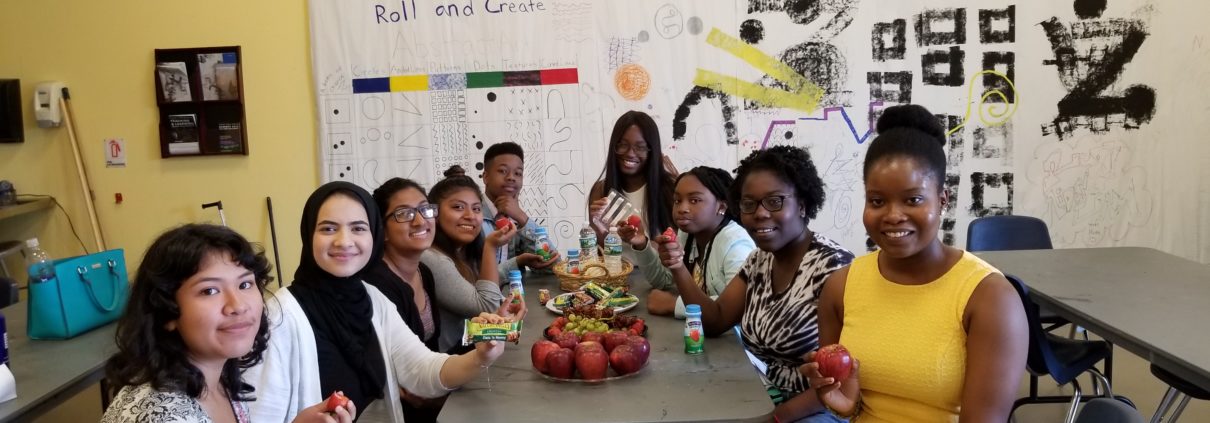Hudson River Museum of Westchester
CACFP Success Story
Hudson River Museum: Yonkers, NY
The Junior Docent Program at Hudson River Museum trains Yonkers high school students to become leaders, thinkers, professionals, and contributing members of the Yonkers community. The program aims to enhance students’ appreciation of art and culture, while enabling them to practice professional skills and work toward becoming museum employees. Nearly eighty high school students participate in the program, representing every high school in Yonkers. Junior Docents meet once a week, after school or on weekends, learning from curators, artists, scientists, historians, and other experts to further leadership and college readiness skills. To nourish students and ensure they are ready to learn, the program also includes a healthy snack, supported by the Child and Adult Care Food Program (CACFP).
Manager of Youth and Family Programs, Araya Henry enrolled in CACFP because the reimbursement funding helps offset the cost of healthy menu options; she explains, “The financial support [enables us] to provide nutritious snacks such as fresh fruits and vegetables, dairy products, nuts, and whole grains that would otherwise be expensive and out of our budget.” Before participating in CACFP, the program served snacks that were less expensive and sometimes high in sugar and fat. Now, with CACFP reimbursements, healthier options are within reach. Henry explains, “In our afterschool program, we promote exposure to healthy snack choices, introduce unfamiliar foods to participants, and provide nutritious options that are beneficial to mental and physical health.” Because CACFP reimburses for meals and snacks served on weekends, too, the benefits of nutritious snacks extend to their Saturday and Sunday sessions as well.
Hudson River Museum purchases their snacks through wholesale distributors. They use cycle menus, which they have found to be the most successful planning method for their program; cycle menus include different snack options each day, then are repeated after a certain period of time, often monthly. Henry explains, “[Using cycle menus] saves time and money, and allows us to offer a variety of menu selections, control food costs, keep track of regularly used snack items, and take advantage of seasonal fruits and vegetables.”
Henry speaks highly of the resources and support available through NYS CACFP, saying “CACFP has been very accommodating to us, and their guidelines are clear. They are also extremely responsive and the relationship has been wonderful thus far.” She strongly encourages other afterschool and childcare providers to enroll: “CACFP would enable your program to be able to provide nutritional food options to your students which may otherwise be too expensive to purchase on a regular basis. Exposing students to nutritional foods will give them the life skill and practice to recognize the benefits of making healthy food choices, [and] will support your students’ well-being, boost their self-esteem, and promote a positive body image. We’ve seen these improvements in our program, and hope you will too!”
Plan a visit to the Hudson River Museum by visiting their website for more information: hrm.org
For more information about CACFP and to access additional resources including webinars, a meal-planning template, and a sample menu, visit our website: http://networkforyouthsuccess.org/child-nutrition/ and AfterschoolMealsNY.org.



